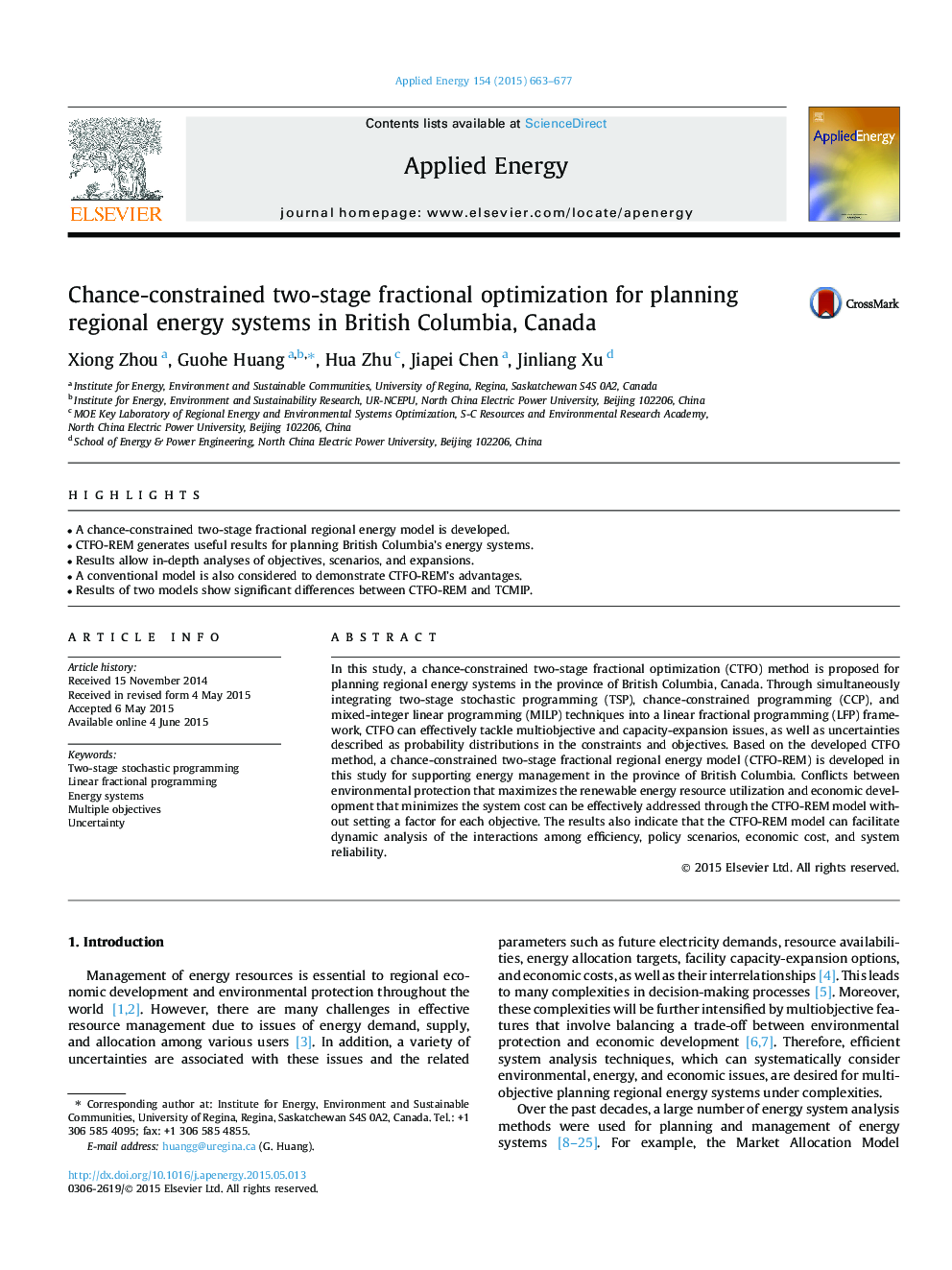| Article ID | Journal | Published Year | Pages | File Type |
|---|---|---|---|---|
| 6686975 | Applied Energy | 2015 | 15 Pages |
Abstract
In this study, a chance-constrained two-stage fractional optimization (CTFO) method is proposed for planning regional energy systems in the province of British Columbia, Canada. Through simultaneously integrating two-stage stochastic programming (TSP), chance-constrained programming (CCP), and mixed-integer linear programming (MILP) techniques into a linear fractional programming (LFP) framework, CTFO can effectively tackle multiobjective and capacity-expansion issues, as well as uncertainties described as probability distributions in the constraints and objectives. Based on the developed CTFO method, a chance-constrained two-stage fractional regional energy model (CTFO-REM) is developed in this study for supporting energy management in the province of British Columbia. Conflicts between environmental protection that maximizes the renewable energy resource utilization and economic development that minimizes the system cost can be effectively addressed through the CTFO-REM model without setting a factor for each objective. The results also indicate that the CTFO-REM model can facilitate dynamic analysis of the interactions among efficiency, policy scenarios, economic cost, and system reliability.
Keywords
Related Topics
Physical Sciences and Engineering
Energy
Energy Engineering and Power Technology
Authors
Xiong Zhou, Guohe Huang, Hua Zhu, Jiapei Chen, Jinliang Xu,
